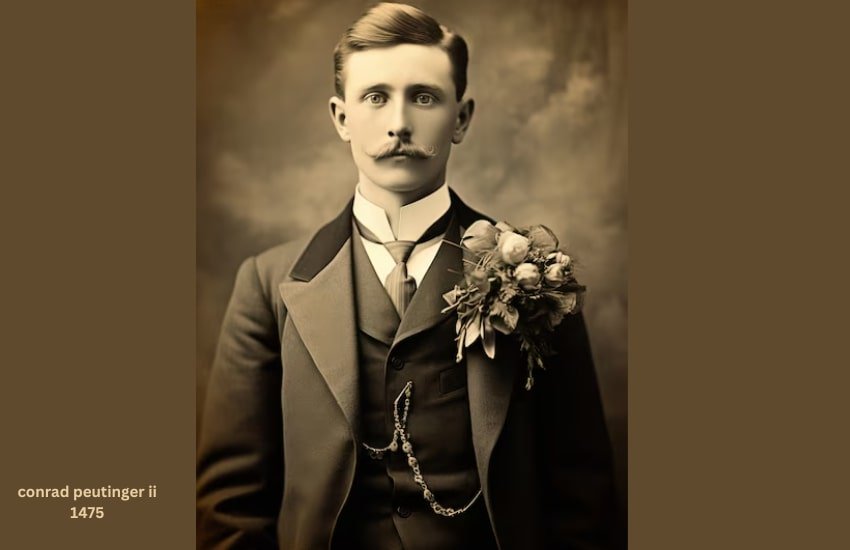Conrad Peutinger II, born in 1475, emerged as a significant figure during the Renaissance.
His contributions spanned multiple fields, including law, humanism, diplomacy, and scholarship.
This article explores the life and legacy of Peutinger, showcasing his role as a scholar and diplomat, as well as his lasting impact on the intellectual landscape of early modern Europe.
Early Life and Family Background
conrad peutinger ii 1475 was born into a wealthy merchant family in Augsburg, a key center for commerce in the Holy Roman Empire.
His father, Conrad Peutinger I, played an influential role in the city’s trade and economy.
This privileged upbringing provided Conrad II with access to quality education and intellectual circles.
His family background laid a strong foundation for his future pursuits, allowing him to explore the rich cultural and academic opportunities of his time.
Education and Influence of Humanism

Peutinger’s education was marked by his studies at renowned universities, including the University of Padua, where he earned a law degree.
His exposure to humanist ideals significantly shaped his worldview. Humanism, emphasizing the study of classical antiquity and individual potential, became the cornerstone of Peutinger’s intellectual journey.
His education in Italy exposed him to the revival of ancient Roman texts, philosophy, and art, fueling his passion for preserving classical knowledge.
Contributions to Renaissance Humanism
As a Renaissance humanist, conrad peutinger ii 1475 was dedicated to rediscovering and promoting classical antiquity.
His commitment to this movement is evident in his extensive collection of Roman artifacts, manuscripts, and maps.
His notable achievement, the Tabula Peutingeriana, is a 4th-century Roman road map that offers critical insights into ancient geography and trade routes.
By preserving and sharing this map, Peutinger ensured that classical knowledge would continue to inspire future scholars.
The Tabula Peutingeriana: A Significant Artifact
The Tabula Peutingeriana is a remarkable example of ancient cartography. Stretching over 22 feet in length, this map illustrates the Roman road system from Western Europe to India.
Originally copied from Roman sources, it served as a practical guide for travelers and merchants.
Peutinger’s dedication to promoting this map showcases his humanist passion for history and geography. The Tabula remains an invaluable resource for historians studying ancient Rome.
Read: UConn Student Dies Parking Garage: University Mourns a Tragic Loss!
Career as a Diplomat and City Councilor
In addition to his scholarly pursuits, conrad peutinger ii 1475 was actively involved in politics.
Serving as a city councilor in Augsburg, he used his legal expertise to negotiate on behalf of the city in various political matters.

His role as a diplomat became particularly significant during the Diet of Augsburg in 1530, a crucial assembly in the context of the Protestant Reformation.
Here, Peutinger’s diplomatic skills helped maintain a delicate balance between competing religious factions, showcasing his influence in shaping political discourse.
Diplomatic Achievements And Relationships
Peutinger’s close relationships with emperors like Maximilian I and Charles V further established his political prominence.
His advisory role to Maximilian allowed him to influence key decisions within the Holy Roman Empire.
Through his work, Peutinger contributed to the political stability of the region during a time marked by religious conflict and upheaval.
Intellectual Contributions and Correspondence
Conrad Peutinger II’s influence extended beyond politics into the realm of scholarship.
He maintained extensive correspondence with leading humanists of his time, such as Erasmus of Rotterdam.
These exchanges fostered the dissemination of humanist ideas and facilitated the revival of classical texts.
By promoting intellectual dialogue, Peutinger played a pivotal role in shaping the cultural landscape of the Renaissance.
Advocacy For Educational Reform
Peutinger was also a staunch advocate for educational reform. He believed that the study of classical texts was essential for moral and intellectual development.
His efforts led to the establishment of libraries and the promotion of classical education in schools.

This commitment to education reflects the core principles of humanism, emphasizing the potential for individual growth and societal improvement.
Later Years and Legacy
conrad peutinger ii 1475 remained active in both scholarly and political spheres until his death in 1547.
His dedication to preserving ancient knowledge and promoting civic reform left a lasting impact on Augsburg and beyond.
After his passing, his extensive collection of manuscripts and artifacts was distributed to libraries and collectors, ensuring that his contributions would continue to influence scholars for generations to come.
Influence On Future Generations
Peutinger’s legacy as a Renaissance humanist continues to resonate today.
His work in preserving classical knowledge and advocating for education paved the way for future thinkers and scholars.
He is remembered as one of the key figures of the German Renaissance, bridging the gap between ancient wisdom and modern thought.
Read: Examining The Maine Shooting: Causes And Responses!
Conclusion:
Conrad Peutinger II’s life exemplifies the ideals of the Renaissance. His contributions to humanism, cartography, and diplomacy have left an indelible mark on history.
As a scholar and statesman, he played a crucial role in the intellectual and political landscape of early modern Europe.
Today, Peutinger is celebrated as a visionary figure whose commitment to preserving classical knowledge continues to inspire future generations.
FAQs:
Who was Conrad Peutinger II?
conrad peutinger ii (1475–1547) was a Renaissance humanist, scholar, and diplomat from Augsburg, known for his contributions to law, cartography, and education.
What is the significance of the Tabula Peutingeriana?
The Tabula Peutingeriana is a 4th-century Roman road map that illustrates the extensive road system of the Roman Empire, showcasing ancient geography and trade routes.
How did Peutinger contribute to humanism?
Peutinger promoted the study of classical antiquity, collected Roman artifacts, and engaged with leading humanists, thereby influencing Renaissance thought.
What political roles did conrad peutinger ii 1475 hold?
He served as a city councilor in Augsburg and played a diplomatic role during the Diet of Augsburg in 1530, helping to navigate religious tensions.
What was Peutinger’s relationship with Emperor Maximilian I?
Peutinger served as a close advisor to Maximilian I, influencing political decisions within the Holy Roman Empire during a critical period.
What educational reforms did Peutinger advocate?
He promoted the study of classical texts in schools and supported the establishment of libraries to enhance education in Augsburg.
How did Peutinger influence cartography?
His dedication to the preservation and dissemination of the Tabula Peutingeriana helped shape the field of cartography and historical geography.
What impact did Peutinger have on the Protestant Reformation?
His diplomatic efforts during the Diet of Augsburg were crucial in maintaining balance between Catholic and Protestant factions during a time of religious conflict.
How is conrad peutinger ii 1475 remembered today?
He is regarded as a key figure of the German Renaissance, celebrated for his contributions to humanism, scholarship, and civic reform.
What was the focus of Peutinger’s scholarly correspondence?
His correspondence covered topics such as Roman history, contemporary political events, and humanist ideas, fostering intellectual dialogue among scholars.
Read:





